
The Pont du Gard is an ancient Roman aqueduct bridge built in the first century AD to carry water over 50 km (31 mi) to the Roman colony of Nemausus (Nîmes). It crosses the river Gardon near the town of Vers-Pont-du-Gard in southern France. The Pont du Gard is the highest of all Roman aqueduct bridges, as well as one of the best preserved. It was added to UNESCO's list of World Heritage sites in 1985 because of its exceptional preservation, historical importance, and architectural ingenuity.
E. I. du Pont de Nemours and Company, commonly referred to as DuPont, was an American company that was founded in July 1802 in Wilmington, Delaware, as a gunpowder mill by French-American chemist and industrialist Éleuthère Irénée du Pont de Nemours.

Neoprene is a family of synthetic rubbers that are produced by polymerization of chloroprene. Neoprene exhibits good chemical stability and maintains flexibility over a wide temperature range. Neoprene is sold either as solid rubber or in latex form and is used in a wide variety of commercial applications, such as laptop sleeves, orthopaedic braces, electrical insulation, liquid and sheet-applied elastomeric membranes or flashings, and automotive fan belts.

Tiles are usually thin, square or rectangular coverings manufactured from hard-wearing material such as ceramic, stone, metal, baked clay, or even glass. They are generally fixed in place in an array to cover roofs, floors, walls, edges, or other objects such as tabletops. Alternatively, tile can sometimes refer to similar units made from lightweight materials such as perlite, wood, and mineral wool, typically used for wall and ceiling applications. In another sense, a tile is a construction tile or similar object, such as rectangular counters used in playing games. The word is derived from the French word tuile, which is, in turn, from the Latin word tegula, meaning a roof tile composed of fired clay.

Permeable paving surfaces are made of either a porous material that enables stormwater to flow through it or nonporous blocks spaced so that water can flow between the gaps. Permeable paving can also include a variety of surfacing techniques for roads, parking lots, and pedestrian walkways. Permeable pavement surfaces may be composed of; pervious concrete, porous asphalt, paving stones, or interlocking pavers. Unlike traditional impervious paving materials such as concrete and asphalt, permeable paving systems allow stormwater to percolate and infiltrate through the pavement and into the aggregate layers and/or soil below. In addition to reducing surface runoff, permeable paving systems can trap suspended solids, thereby filtering pollutants from stormwater.
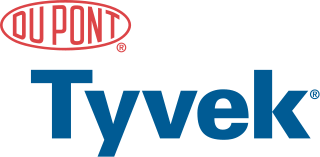
Tyvek is a brand of flashspun high-density polyethylene fibers, a synthetic material; the name is a registered trademark of the DuPont company, known for their production of chemicals and textiles. Tyvek is often used as housewrap, a synthetic material used to protect buildings during construction, or as personal protective equipment The material is difficult to tear, but can easily be cut with scissors or a knife. Water vapor can pass through Tyvek, but liquid water cannot. All of these properties have led to Tyvek being used in a variety of applications.
Artificial leather, also called synthetic leather, is a material intended to substitute for leather in upholstery, clothing, footwear, and other uses where a leather-like finish is desired but the actual material is cost prohibitive or unsuitable. Artificial leather is known under many names, including leatherette, imitation leather, faux leather, vegan leather, PU leather, and pleather.
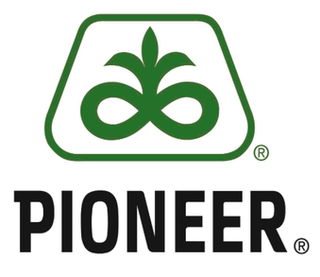
Pioneer Hi-Bred International, Inc. is a U.S.-based producer of seeds for agriculture. They are a major producer of genetically modified organisms (GMOs), including genetically modified crops with insect and herbicide resistance.
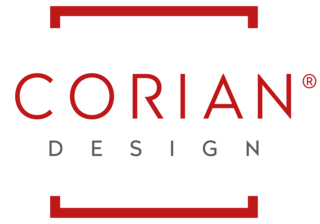
Corian is a brand of solid surface material created by DuPont. Its primary use is as a countertop and benchtop surface, though it has many other applications. It is composed of acrylic polymer and alumina trihydrate (ATH), a material derived from bauxite ore. Corian is the original material of this type, created by DuPont scientists in 1967. A number of direct solid surface competitors to Corian have emerged since the expiration of DuPont’s patent on solid surfaces.

Le Pont-de-Montvert is a former commune in the Lozère département in southern France. On 1 January 2016, it was merged into the new commune of Pont-de-Montvert-Sud-Mont-Lozère.

W. L. Gore & Associates, Inc. is an American multinational manufacturing company specializing in products derived from fluoropolymers. It is a privately held corporation headquartered in Newark, Delaware. It is best known as the developer of waterproof, breathable Gore-Tex fabrics.

Cast stone or reconstructed stone is a highly refined building material, a form of precast concrete used as masonry intended to simulate natural-cut stone. It is used for architectural features: trim, or ornament; facing buildings or other structures; statuary; and for garden ornaments. Cast stone can be made from white and/or grey cements, manufactured or natural sands, crushed stone or natural gravels, and colored with mineral coloring pigments. Cast stone may replace such common natural building stones as limestone, brownstone, sandstone, bluestone, granite, slate, coral, and travertine.

Artificial stone is a name for various synthetic stone products produced from the 18th century onward. Uses include statuary, architectural details, fencing and rails, building construction, civil engineering work, and industrial applications such as grindstones.

The DuPont Experimental Station is the largest research and development facility of DuPont. Located on the banks of the Brandywine Creek in Wilmington, Delaware, it is home to some of the most important discoveries of the modern chemical industry.
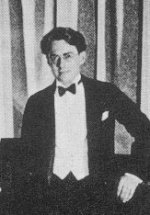
Cavalcade of America is an anthology drama series that was sponsored by the DuPont Company, although it occasionally presented musicals, such as an adaptation of Show Boat, and condensed biographies of popular composers. It was initially broadcast on radio from 1935 to 1953, and later on television from 1952 to 1957. Originally on CBS, the series pioneered the use of anthology drama for company audio advertising.
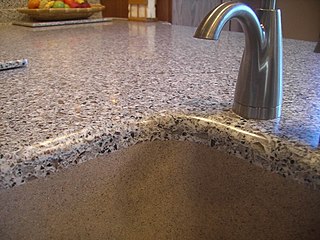
Solid surface is a man-made material usually composed of a combination of alumina trihydrate (ATH), acrylic, epoxy or polyester resins and pigments. It is most frequently used for seamless countertop installations.

DuPont v. Kolon Industries is an intellectual property lawsuit centering on the allegation that Kolon Industries, a South Korea-based company, stole trade secrets concerning the production and marketing of Kevlar from DuPont, an American chemical company. Kevlar is a high strength synthetic fiber used in applications as diverse as bicycle tires and body armor. On September 14, 2011, a jury found in favour of DuPont and awarded damages of $919.9 million. A 2015 settlement reduced the damages to $275 million.
Bretonstone is a patented technology invented in the early-1970s by Breton S.p.A., a privately held company of Castello di Godego (TV) in the north-east of Italy and supplier of machines and technologies for making engineered stone. Nowadays most manufacturers of engineered stone use this patented Bretonstone system, also known as vibro-compression under vacuum.
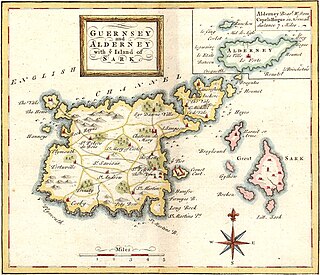
The Braye du Valle is the area between the main Island of Guernsey and Le Clos du Valle, which was a tidal island to the north.

DuPont de Nemours, Inc., commonly known as DuPont, is an American company formed by the merger of Dow Chemical and E. I. du Pont de Nemours and Company on August 31, 2017, and the subsequent spinoffs of Dow Inc. and Corteva. Prior to the spinoffs it was the world's largest chemical company in terms of sales. The merger has been reported to be worth an estimated $130 billion. With 2018 total revenue of $86 billion, DowDuPont ranked No. 35 on the 2019 Fortune 500 list of the largest United States public corporations. DuPont is headquartered in Wilmington, Delaware, in the state where it is incorporated, since the founding of the old DuPont in 1802.















